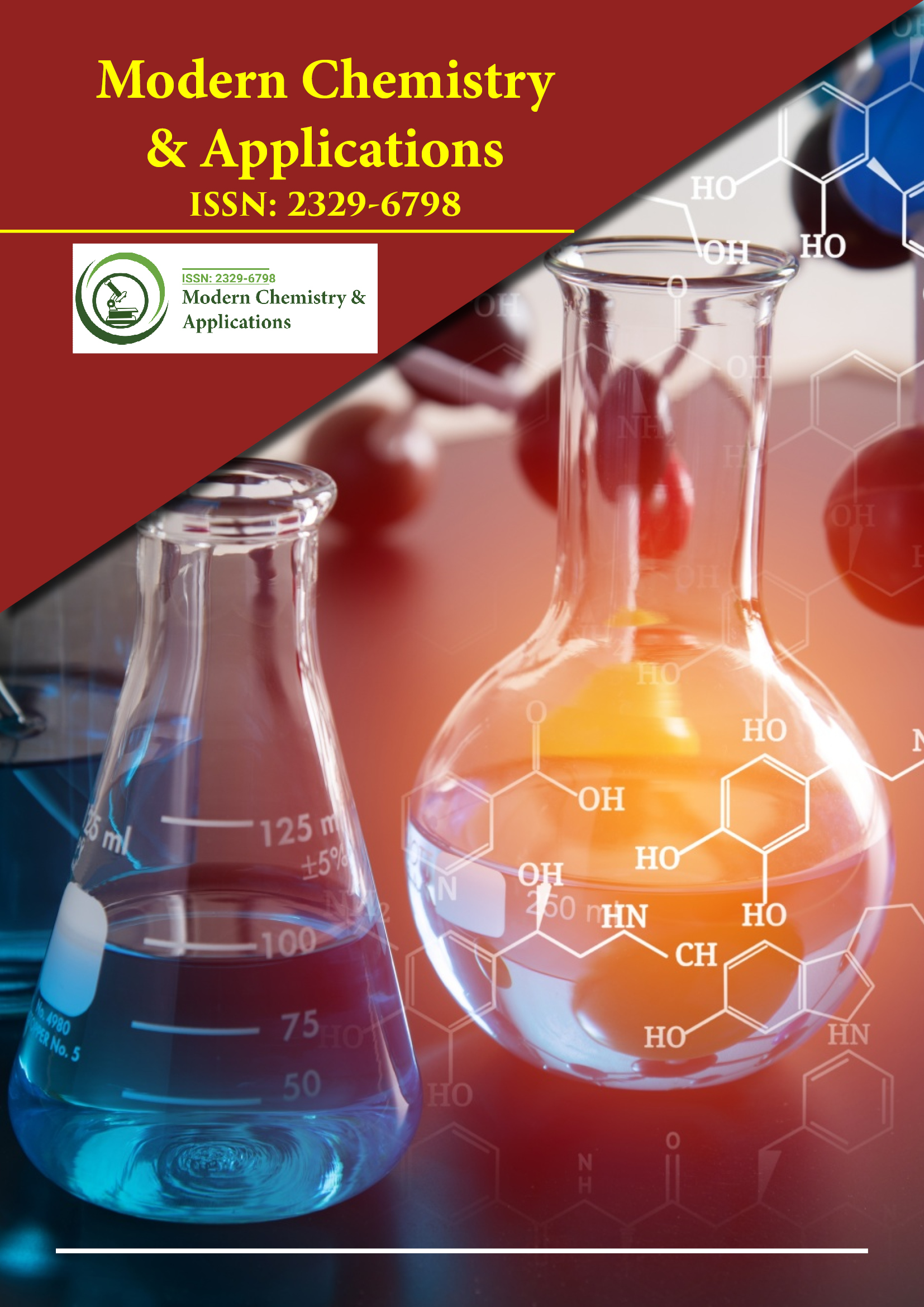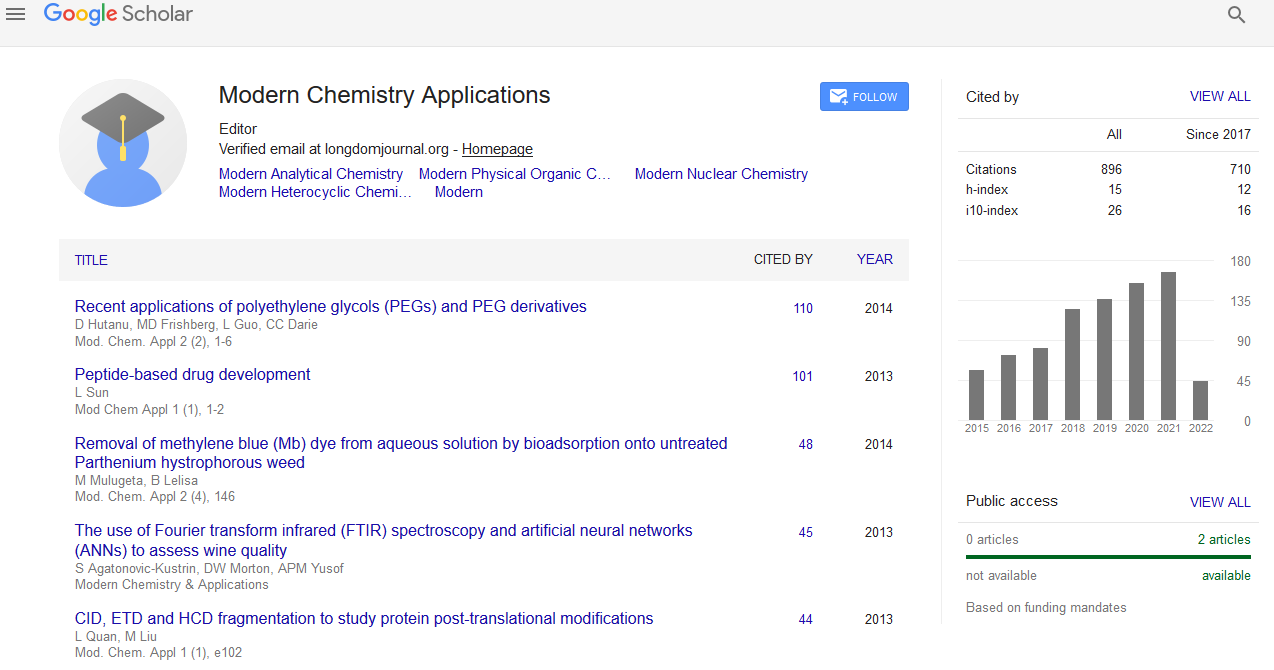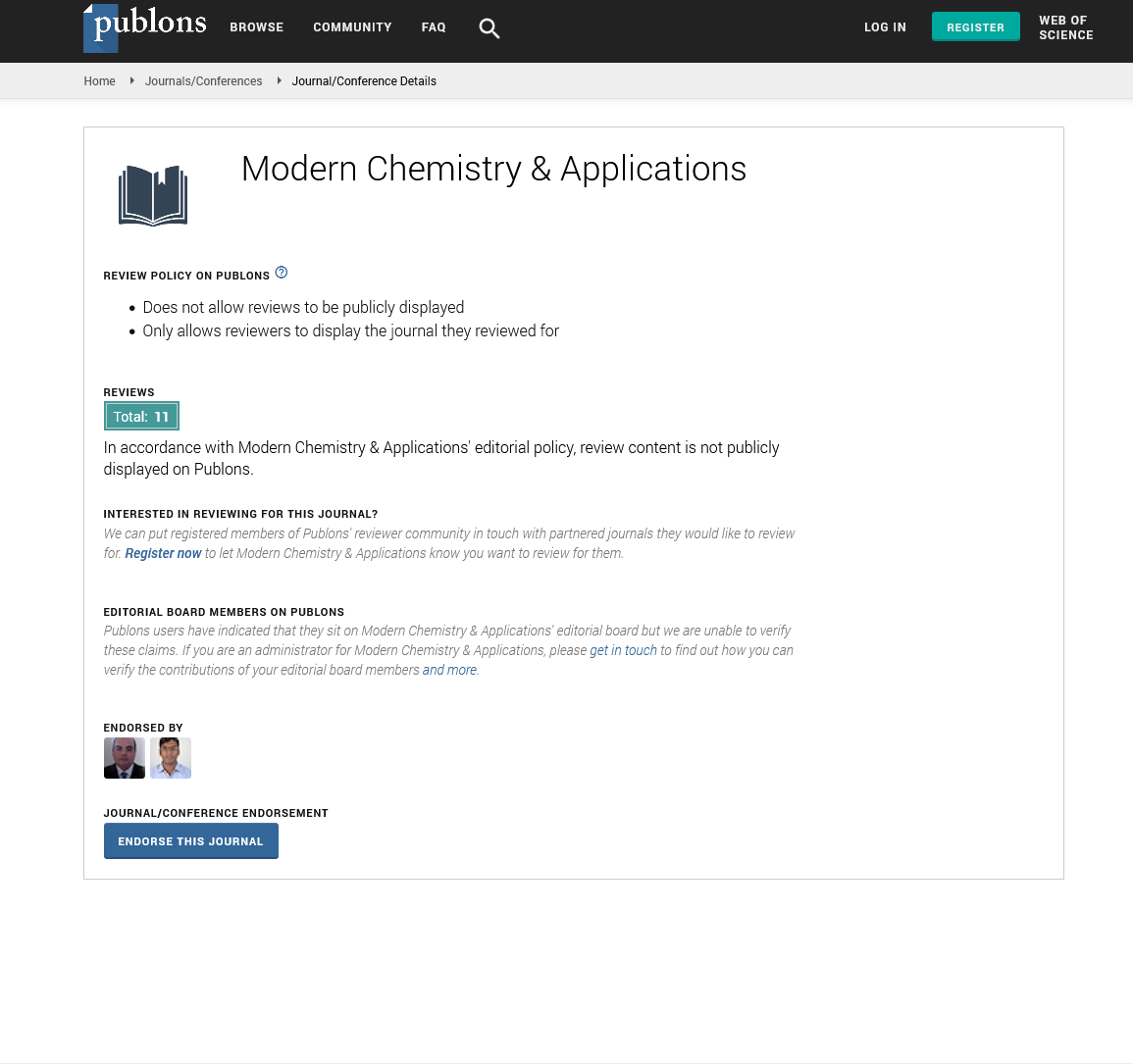Indexed In
- Open J Gate
- JournalTOCs
- RefSeek
- Hamdard University
- EBSCO A-Z
- OCLC- WorldCat
- Scholarsteer
- Publons
- Geneva Foundation for Medical Education and Research
- Google Scholar
Useful Links
Share This Page
Journal Flyer

Open Access Journals
- Agri and Aquaculture
- Biochemistry
- Bioinformatics & Systems Biology
- Business & Management
- Chemistry
- Clinical Sciences
- Engineering
- Food & Nutrition
- General Science
- Genetics & Molecular Biology
- Immunology & Microbiology
- Medical Sciences
- Neuroscience & Psychology
- Nursing & Health Care
- Pharmaceutical Sciences
Nanostructured metal chalcogenides: Efficient electrocatalysts for water splitting applications
Joint Event on 19th International Conference on Medicinal Chemistry & Multi Targeted Drug Delivery & International Conference on Catalysis and Pyrolysis
November 05-06, 2018 | San Francisco, USA
Ram K Gupta
Pittsburg State University, USA
Scientific Tracks Abstracts: Mod Chem Appl
Abstract:
Development of environment-friendly and cost-effective materials for clean energy production is attracting considerable research interest. Water electrolysis is one of the greenest ways to generate hydrogen and oxygen as fuels. Various metal oxides and sulfides are being used for energy applications. However, metal chalcogenides showed better performance as electrocatalyst compared to its oxides counterpart due to high electrical conductivity. The current state-of-the-art noble metalbased electrocatalysts are the most efficient electrocatalysts for water electrolysis, however, their high cost and limited availability have curtailed their extensive use as electrocatalysts. In this seminar, we will report on the synthesis of nanostructured metal chalcogenides using facile methods for hydrogen and oxygen evolution via electrochemically water splitting. Our results showed that a simple post synthesis treatment of the metal chalcogenides could drastically improve their electrocatalytic properties. For example, hydrazine treated molybdenum sulfide showed about 100mV improvement in overpotential after exposure to dilute hydrazine at room temperature with a significant change in Tafel slope. The metal chalcogenides based electrode showed outstanding flexibility and electrochemical stability. The reason for the high catalytic activity of these metal chalcogenides will be discussed during the presentation. Our research demonstrated that earth-abundant materials such as transition metal chalcogenides could be effectively used for hydrogen and oxygen evolution via water electrolysis.
Biography :
Ram Gupta is an Assistant Professor of Chemistry at Pittsburg State University, USA. His research focuses on green energy production and storage using conducting polymers and composites, nanomaterials, optoelectronics and photovoltaics devices, organic-inorganic hetero-junctions for sensors, nano-magnetism, bio-based polymers, bio-compatible nanofibers for tissue regeneration, scaffold and antibacterial applications, bio-degradable metallic implants. He had published over 160 peer-reviewed journal articles, made over 150 national/international/regional presentations, chaired many sessions at national/international meetings and received over 1 million dollars for research and educational activities from external agencies such as NSF, DoE, KINBRE. He is serving as Associate Editor and Editorial Board Member for various journals.
E-mail: rgupta@pittsttae.edu


